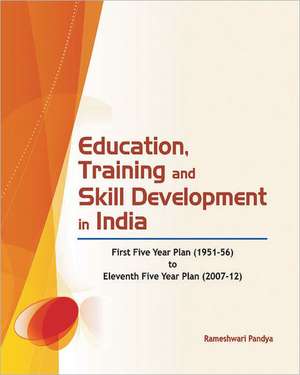Education, Training & Skill Development in India
Editat de Rameshwari Pandyaen Limba Engleză Hardback – 30 iul 2011
Preț: 727.16 lei
Preț vechi: 816.24 lei
-11% Nou
Puncte Express: 1091
Preț estimativ în valută:
139.15€ • 148.79$ • 116.01£
139.15€ • 148.79$ • 116.01£
Carte indisponibilă temporar
Doresc să fiu notificat când acest titlu va fi disponibil:
Se trimite...
Preluare comenzi: 021 569.72.76
Specificații
ISBN-13: 9788177082739
ISBN-10: 8177082736
Pagini: 514
Dimensiuni: 189 x 247 x 44 mm
Greutate: 1.36 kg
Editura: New Century Publications
ISBN-10: 8177082736
Pagini: 514
Dimensiuni: 189 x 247 x 44 mm
Greutate: 1.36 kg
Editura: New Century Publications
